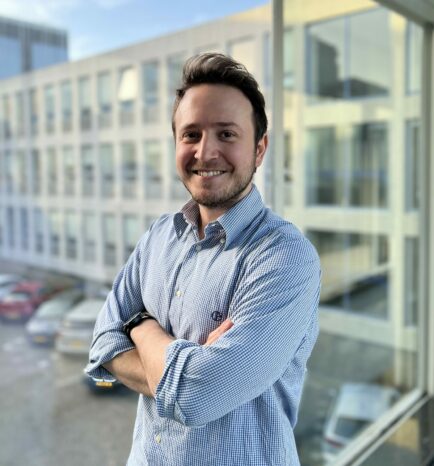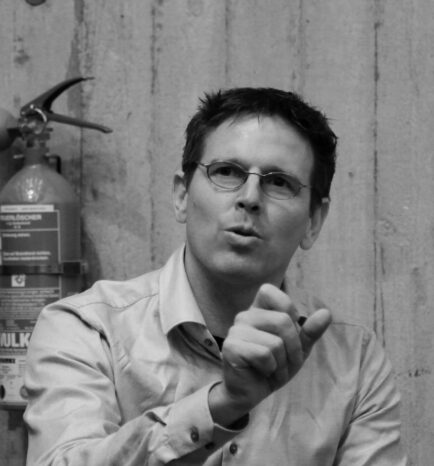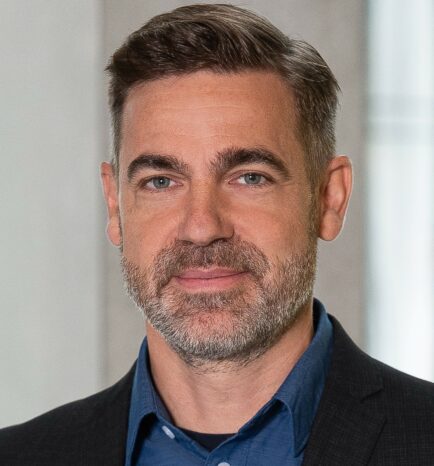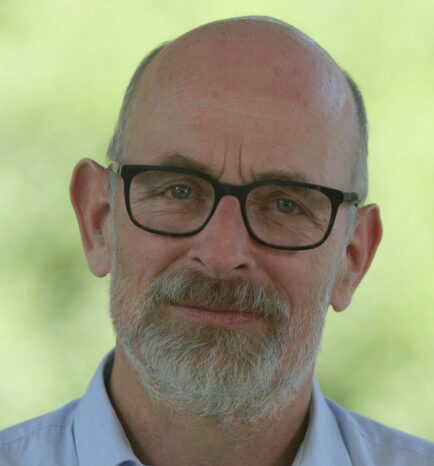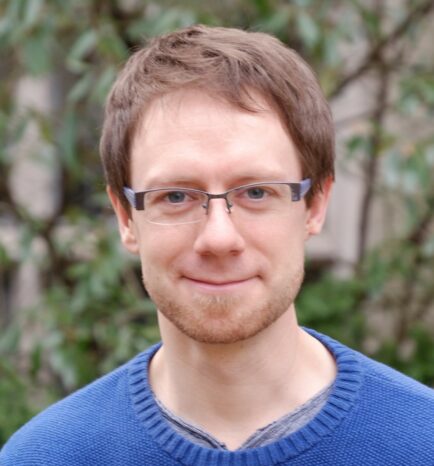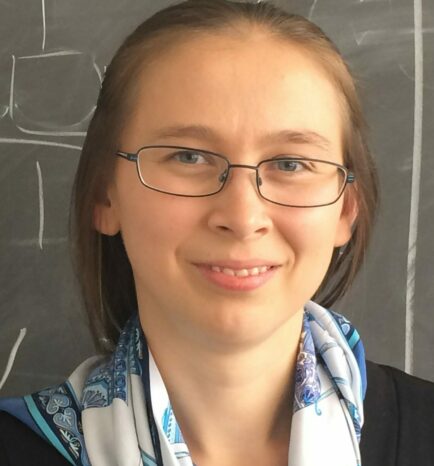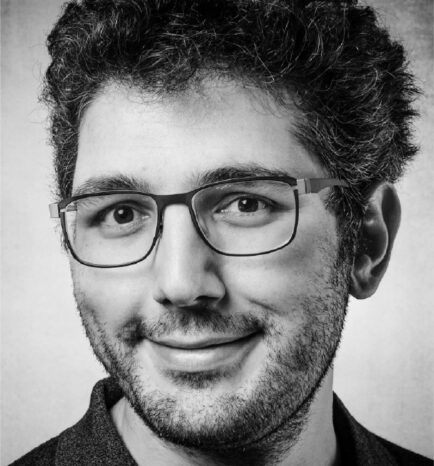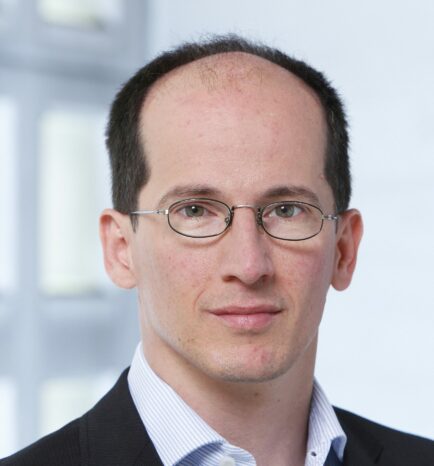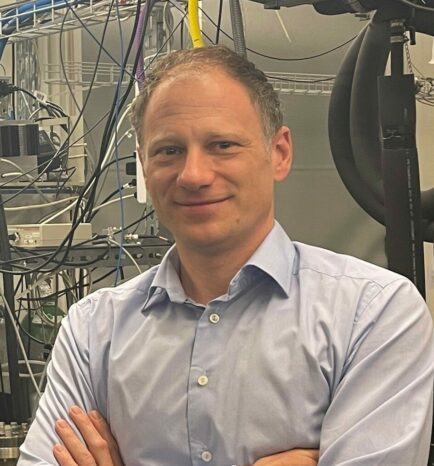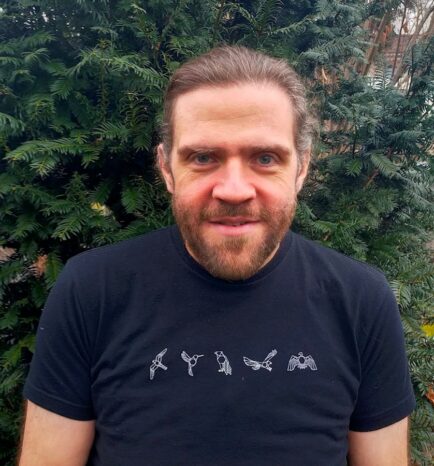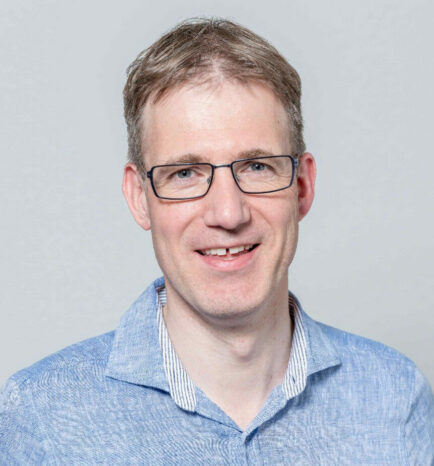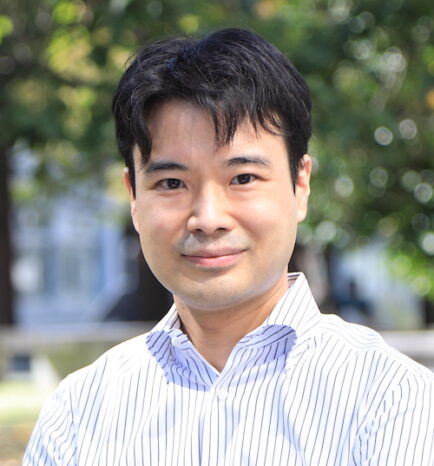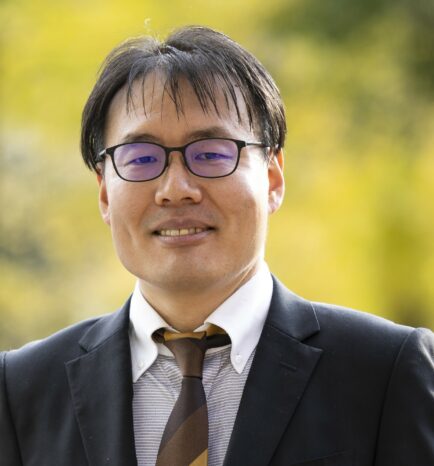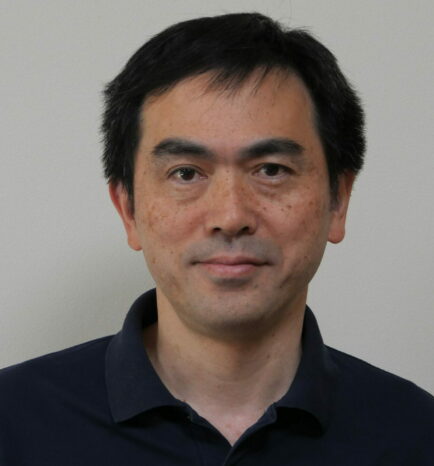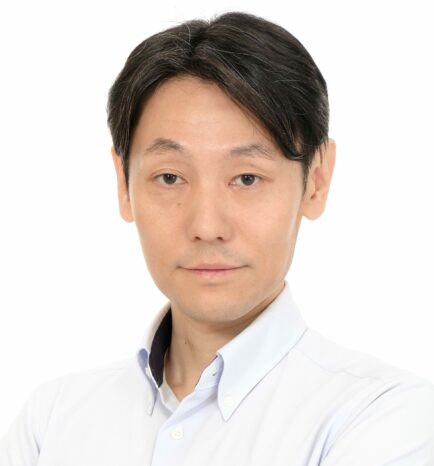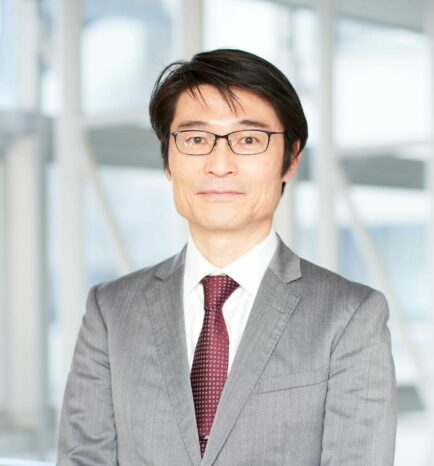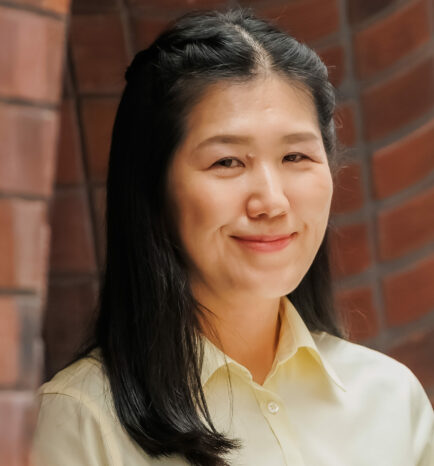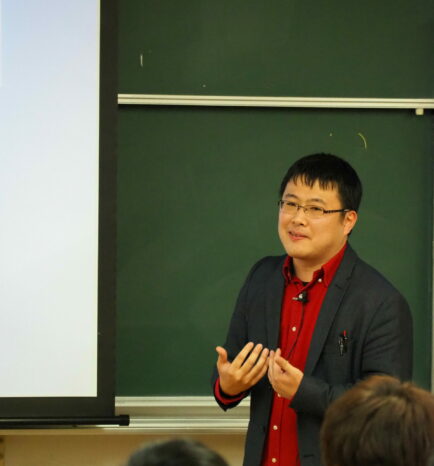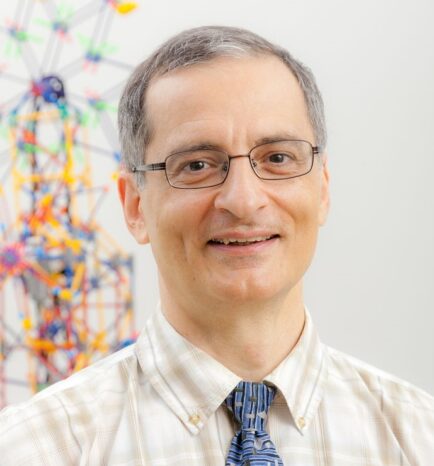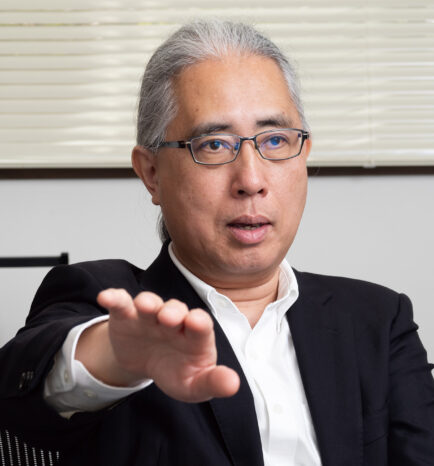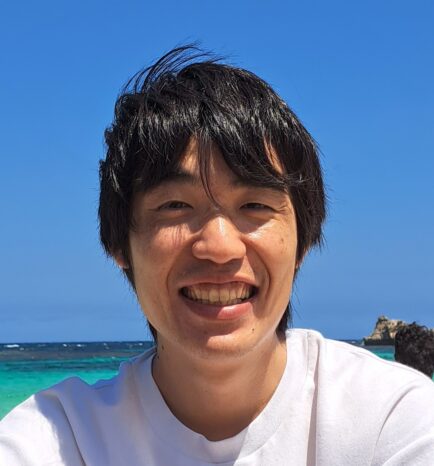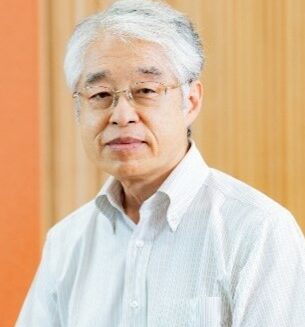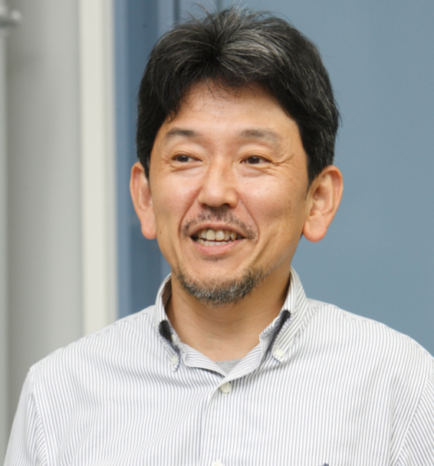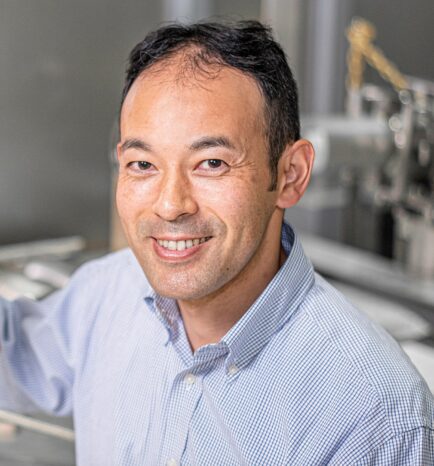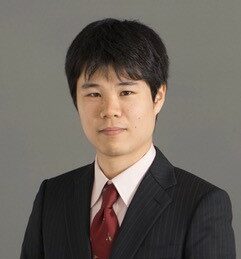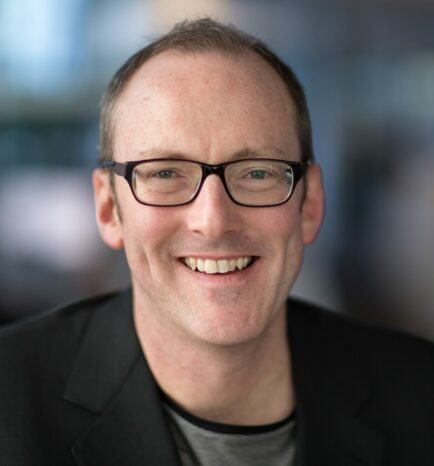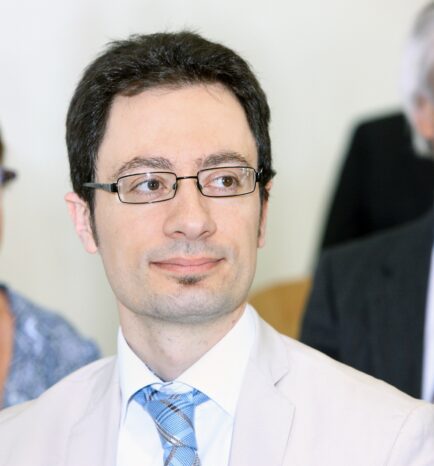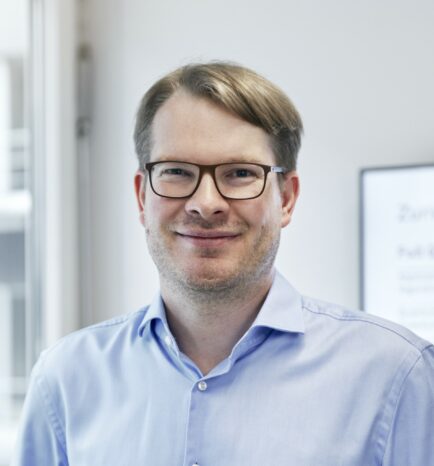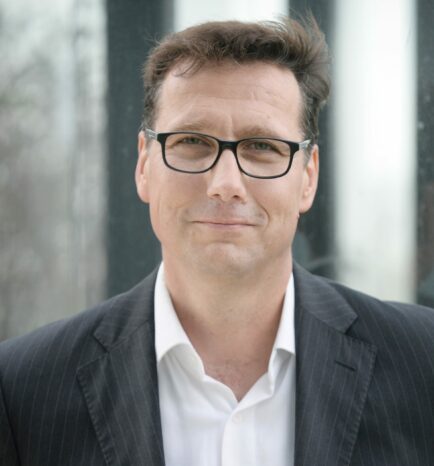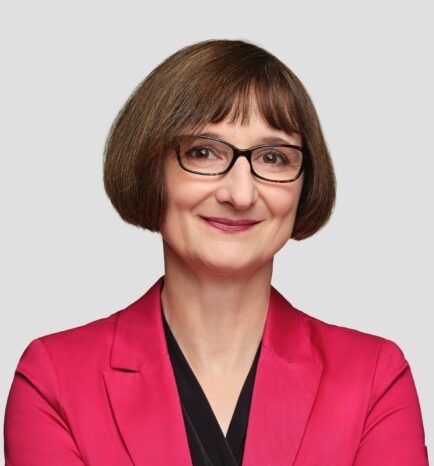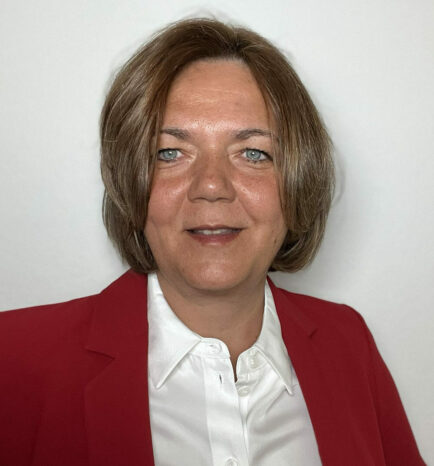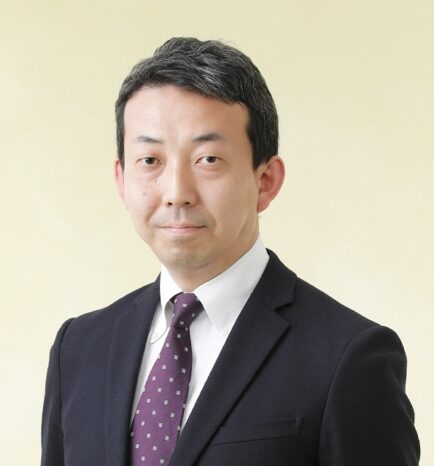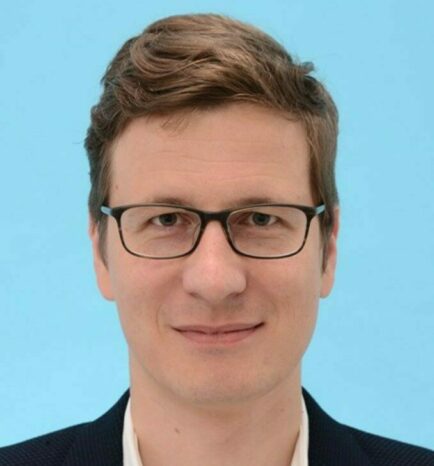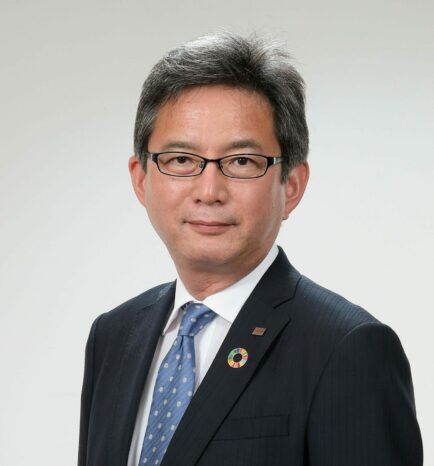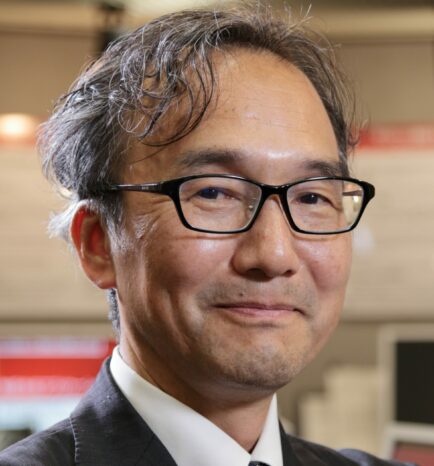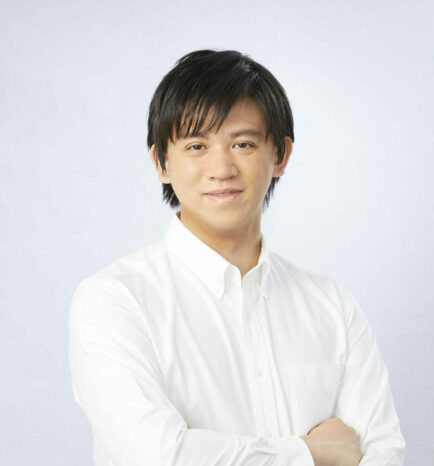
Quantum science and technology hold significant potential for revolutionary breakthroughs. With shared objectives in Science, Technology, and Innovation, Switzerland and Japan are investing in this critical strategic field.
The Swiss-Japanese Quantum Symposium will bring together key actors in the field of quantum from both countries on June 5-7, 2024, at the Yayoi Auditorium of the University of Tokyo.
Co-chaired by Prof. Daniel Loss of the University of Basel and Director of RIKEN Center for Quantum Computing, Dr. Yasunobu Nakamura, the symposium aims to broaden collaboration between Swiss and Japanese experts in cutting-edge quantum research and innovation.
The first edition of the Swiss-Japanese Quantum Symposium is co-organized by the Science and Technology Office Tokyo (STO), Embassy of Switzerland and the RIKEN Center for Quantum Computing (RQC), RIKEN.
This initiative is part of broader bilateral efforts following the signing of a Memorandum of Cooperation (MoC) in October to promote the exchange of knowledge, resources, and talent in this key scientific field.
Program
Wednesday, June 5
09:30 Opening
10:00 Quantum Information Processing with Superconducting Circuits | Prof. Andreas Wallraff
10:30 Quantum Optics with Giant Atoms: Decoherence-Free Interaction between Giant Atoms in Waveguide Quantum Electrodynamics | Prof. Franco Nori
11:00 Coffee break
11:30 Ultrafast Quantum Computing with Ultracold Atom Arrays at Quantum Speed Limit | Prof. Kenji Ohmori
12:00 Quantum Metrology of Trapped Molecules | Prof. Stefan Willitsch
12:30 Lunch break
13:30 Poster session
14:30 High Fidelity Multiqubit Devices in Silicon | Prof. Seigo Tarucha
15:00 Quantum Computing with Si and Ge Spins | Prof. Dominik Zumbuhl
15:30 Quantum Computation with Hole Spin Qubits | Dr. Stefano Bosco
16:00 Coffee break
16:30 Towards the Future Quantum Economy | Mr. Shunsuke Okada
16:45 The Swiss Quantum Landscape: Private and Public Approaches Jointly at Work | Dr. Andreas Masuhr
17:00 Hardware and Software Efforts for Realizing Practical Quantum Computing | Dr. Shintaro Sato
17:15 IBM Quantum Computing Overview | Dr. Heike Riel
17:30 From NISQ Quantum Algorithms to Early Fault-Tolerant Quantum Computing: Advancements in Algorithm and Software Development | Mr. Tennin Yan
Thursday, June 6
09:30 Quantum Circuits for Quantum Computation Using Electron Wave Packets | Prof. Michihisa Yamamoto
10:00 High Impedance Superconducting Technology for Hybrid Devices | Prof. Pasquale Scarlino
10:30 Coffee break
11:00 Nanofiber Cavity Quantum Electrodynamics Systems for Distributed Quantum Computing | Prof. Takao Aoki
11:30 Quantum Computation with Rydberg Atoms | Prof. Hans Peter Büchler
12:00 Lunch break
13:00 Poster session
14:00 EarlyFTQC: Closing the Gap Between NISQ and FTQC | Prof. Keisuke Fujii
14:30 Proof-of-Principle Experiments for Quantum Error Correction | Dr. James Wootton
15:00 Basic Synthesis Tools and Applications in Quantum Computing | Prof. Naoki Yamamoto
15:30 Coffee break
16:00 Enabling the Second Quantum Revolution with Classical Instrumentation | Dr. Moritz Kirste
16:15 Scalable Qubit Controller | Mr. Yosuke Ito
16:30 Accelerating the Development of Quantum Computers through Automation | Dr. Jelena Trbovic
16:45 Quantum Computing at Hitachi | Dr. Normann Mertig
17:00 Erste Group Bank quantum prototypes | Dr. Filipo Fratini
17:15 Next Generation of RF Connectivity for Superconducting Quantum Computers | Mr. Ian Bland
Friday, June 7
09:30 Topological Superconductivity due to Magnons | Prof. Jelena Klinovaja
10:00 Characterizing Ultimate Potential of Quantum Information Processing via Quantum Resources | Prof. Ryuji Takagi
10:30 Higher-Order quantum computation | Prof. Mio Murao
11:00 Coffee break
11:30 Diamond Spin Qubits for Quantum C&C | Prof. Hideo Kosaka
12:00 Quantum Theory of Valleys in Semiconductor Quantum Dots with Applications for Quantum Computing | Prof. Guido Burkard
12:30 Lunch break
14:00 Bosonic Quantum Information Processing with Schrödinger Cat Qubits | Dr. Alexander Grimm
14:30 Hybrid Technologies with Superconducting Circuits | Prof. Atsushi Noguchi
15:00 Realization of High-Fidelity CZ Gate Based on a Double-Transmon Coupler | Dr. Rui Li (Dr. Hayato Goto lab)
15:30 Coffee break
16:00 Research Activities on Superconducting Devices for Quantum Information and Communications Technology at NICT | Dr. Hirotaka Terai
16:30 Quantum Devices in Graphene | Mr. Max Ruckriegel (Prof. Klaus Ensslin Group)
17:00 Optical Quantum Computers with Quantum Teleportation | Prof. Akira Furusawa
17:30 Closing remarks
18:00 Networking apéro
19:00 Art performance
Academia Speakers
-
![]()
Bio
Stefano Bosco
University of Basel | TU DelftStefano Bosco is a Principal Investigator in the Quantum Computing Division at QuTech, TU Delft. His research concentrates on the theory surrounding semiconducting quantum computing, focusing in particular on the microscopic modeling of spin qubits and hybrid devices. The primary objective is to enhance quantum information processing in a manner that is both hardware-specific and scalable. Stefano obtained a PhD at RWTH Aachen and FZJ Jülich in the group of David DiVincenzo. Afterward, he held a Postdoc position in the group of Daniel Loss and was a Staff Scientist at the University of Basel.
-
![]()
Bio
Hans Peter Büchler
University of StuttgartHans Peter Büchler received his Ph.D. in theoretical physics at the ETH Zürich in 2003. Following his postdoctoral research in the group of Prof. Peter Zoller, he was appointed as a professor at the University of Stuttgart in 2007, and became head of the Institute of Theoretical Physics III in Stuttgart in 2017. His research focuses on the study of quantum many-body phenomena in cold atomic gases and the strong coupling between photons and atoms. He serves as the primary theoretical partner in the initiative at Stuttgart aimed at building a Rydberg quantum computer.
-
![]()
Bio
Guido Burkard
University of Konstanz, Germany | NCCR SPINGuido Burkard is a professor of theoretical physics at the University of Konstanz. His research is devoted to the physics of quantum computing, specifically on systems that can efficiently store, process, and transmit quantum information, with focus on solid-state and hybrid quantum systems. After obtaining his PhD in physics from the University of Basel, Burkard worked at the IBM T. J. Watson Research Center before joining the faculty at the University of Basel, RWTH Aachen University, and the University of Konstanz. Burkard is currently serving as chair of the quantum information division of the German physical society (DPG).
-
![]()
Bio
Klaus Ensslin
ETH ZurichKlaus Ensslin has been Professor of Solid-State Physics at ETH Zurich since October 1995. His research focuses on the physics of mesoscopic systems. The electronic properties of novel semiconductor nanostructures are investigated using material control down to the atomic scale including graphene and other 2D materials. One important goal is the ever increasing control and improved understanding of the quantum properties of electrons in nanostructures in view of a future quantum information processor. He served as a director of the National Center of Competence on “Quantum Science and Technology” 2011-2022.
-
![]()
Bio
Alexander Grimm
Paul Scherrer InstituteAlexander is the head of the bosonic quantum information group at the Paul Scherrer Institute in Switzerland. He obtained his PhD for research done between 2011 and 2015 in the group of Max Hofheinz at CEA Grenoble. From 2016 to 2019 he was part of the group of Michel Devoret at Yale University as a postdoctoral associate, working on bosonic quantum error correction. There, he demonstrated the stabilization and operation of a ‘’Kerr-cat qubit’’, a bosonic qubit based on superpositions of coherent states. In 2022, he received the Nicholas Kurti prize for his contributions to the field of quantum information processing with non-linear effects in Josephson junctions.
-
![]()
Bio
Jelena Klinovaja
University of BaselProfessor Jelena Klinovaja is a physicist at the University of Basel working on condensed matter theory and quantum computing. Her research focuses on topological effects and spin phenomena, especially in topological insulators, carbon-based systems, atomic chains, semiconducting 2DEGs, and nanowires. She studies the properties of existing structures and also works to ‘engineer’ new systems with exotic quantum properties, such as strong electron-electron interactions. Klinovaja is Deputy Co-Director of the Swiss National Centre of Competence in Research: Spin Qubits in Silicon.
-
![]()
Bio
Pasquale Scarlino
EPFLPasquale Scarlino completed his Ph.D. in 2016 at TU Delft, under the guidance of Prof. L.M.K. Vandersypen, focusing on Si/SiGe spin qubits. He later conducted post-doctoral research at ETH Zurich’s Quantum Device Lab led by Prof. A. Wallraff. During this period, he collaborated with Profs. K. Ensslin and T. Ihn, exploring the integration of semiconductor-superconductor quantum platforms. From June 2019 to September 2020, he worked as a Senior Researcher at Microsoft Station Q Copenhagen. Since November 2020, he has served as a tenure track Assistant Professor of Physics at EPFL, establishing the Hybrid Quantum Circuit (HQC) lab to advance superconducting-semiconducting hybrid quantum technology.
-
![]()
Bio
Andreas Wallraff
ETH ZurichAndreas Wallraff is Full Professor for Solid-State Physics in the Department of Physics at ETH Zurich. His work focuses on the experimental investigation of quantum effects in superconducting electronic circuits for fundamental quantum optics experiments and for applications in quantum information processing. His group at ETH Zurich researches micro- and nano-electronics as well as hybrid quantum systems combining superconducting electronic circuits with semiconductor quantum dots, making use of fast and sensitive microwave techniques at ultra-low temperatures.
-
![]()
Bio
Stefan Willitsch
University of BaselStefan Willitsch is a professor of Chemical Physics at the University of Basel. His research focuses on the development of quantum technologies for molecular systems with applications in precision measurements, sensing and chemical-reaction studies. In his various academic roles, he recently served as President of the Division of Fundamental Research of the Swiss Chemical Society, as coordinator for the development of an infrastructure for precision-frequency transfer in Switzerland and as editor of the journal Molecular Physics.
-
![]()
Bio
James Wootton
IBM ZurichDr. habil. James Wootton received his PhD from the University of Leeds in 2010, for work on the use of topologically ordered systems for quantum computing. He then worked on topological quantum error correcting codes at the University of Basel until 2018.
Since 2016, when IBM Quantum first put quantum computing hardware on the cloud, Wootton’s research has focused on the use of current and near-term devices. He has focused on proof-of-principle demonstrations of quantum error correction, benchmarking, uses-cases for procedural generation, and outreach. He joined IBM Quantum in 2018, working at IBM Research in Zurich.
-
![]()
Bio
Dominik Zumbuhl
University of BaselProfessor Dominik Zumbuhl is an experimental physicist at the University of Basel. His lab conducts quantum transport experiments in semiconductor nanostructures, investigating quantum coherence, electron interactions, electron, hole and nuclear spins and their interactions, working towards quantum computing with spins. He obtained his PhD at Harvard, diploma at ETH Zürich and an MSc from Stanford. In 2006, he started his own group at the University of Basel, and won an ERC starting grant in the first call. Since 2021, he is the director of the NCCR SPIN, the Swiss National Program on Quantum Computing with Si and Ge spins.
-
![]()
Bio
Takao Aoki
Waseda UniversityProf. Takao Aoki is the head of the Quantum Optics Group at Department of Applied Physics, Waseda University in Japan, and the Chief Scientific Officer at the quantum hardware startup Nanofiber Quantum Technologies, Inc. He earned BEng, MEng, and PhD in Department of Applied Physics, School of Engineering, The University of Tokyo. His research focuses on quantum technologies based on cavity quantum electrodynamics with optical nanofiber and laser-cooled atoms.
-
![]()
Bio
Keisuke Fujii
Osaka University | RIKENKeisuke Fujii is a Professor of Graduate School of Engineering Science at Osaka University, a Deputy Director of Center for Quantum Information and Quantum Biology (QIQB) at Osaka University, and a Team Leader at RIKEN Center for Quantum Computing (RQC). He earned his PhD in Engineering in 2011 from Kyoto University. After working at Kyoto University and University of Tokyo, he joined Osaka University in 2019 and was honored as a distinguished professor in 2023. His research spans a wide range of topics within quantum computing, including theoretical aspects and software development for near-term applications as well as fault-tolerant quantum computing.
-
![]()
Bio
Akira Furusawa
University of Tokyo | RIKENAkira Furusawa received his MS degree in applied physics and Ph.D. degree in physical chemistry from The University of Tokyo, Japan, in 1986 and 1991, respectively. His research interests cover the area of nonlinear optics, quantum optics, and quantum information science. He is currently Professor of Applied Physics, School of Engineering, The University of Tokyo and the Deputy Director of RIKEN Center for Quantum Computing. Professor Furusawa has authored more than 100 papers in leading technical journals and conferences, which include the first realization of continuous-variable quantum teleportation, which was achieved in 1998 at California Institute of Technology as a visiting scientist at Professor Jeff Kimble’s lab.
-
![]()
Bio
Hayato Goto
Toshiba | RIKENDr. Hayato Goto is a Senior Fellow at Toshiba Corporation, where he leads the Quantum Computer Group and investigates not only quantum computers based on superconducting circuits but also quantum-inspired algorithms for combinatorial optimization. He is also a Team Leader at RIKEN Center for Quantum Computing, where he leads the Quantum Computer Architecture Research Team and his focus is on the theory of fault-tolerant quantum computation.
-
![]()
Bio
Hideo Kosaka
Yokohama National UniversityHideo Kosaka is the director of the Quantum Information Research Center and a professor at Yokohama National University. He is also a Research Fellow of the Institute of Industrial Science, University of Tokyo. After graduating from Kyoto University, he worked at NEC for 15 years and then became an associate professor at Tohoku University and then a full professor at Yokohama National University. He is currently the program manager of the Moonshot Project for the development of quantum computer networks and the leader of the MIC Project for the development of quantum repeater networks.
-
![]()
Bio
Mio Murao
University of Tokyo | RIKENMio Murao received B.S., M.S. and Ph.D. degrees from Ochanomizu University in Tokyo, Japan in 1991, 1993 and 1996, respectively. She worked as a postdoctoral fellow at Harvard University (US), Imperial College, London (UK), and RIKEN (Japan). She became an associate professor in 2001 and a professor in 2015 in the Department of Physics, the School of Science, the University of Tokyo. She has been working in the field of theoretical quantum information science since 1997 and is currently focusing on quantum programming, quantum algorithms, quantum learning, and distributed quantum computation.
-
![]()
Bio
Atsushi Noguchi
University of Tokyo | RIKENAtsushi Noguchi is Associate Professor at the University of Tokyo, and Team Leader of Riken Center for Quantum Computing. He is working on quantum hybrid technologies with superconducting circuits. Superconducting technologies help not only as superconducting qubits, but also as low-loss electric circuits. In his lab, several kinds of hardware are experimentally investigated including superconducting qubits, superconducting ion traps, and electron Paul traps.
-
![]()
Bio
Franco Nori
RIKENFranco Nori is a chief scientist at RIKEN, Wako, Japan, and a research scientist at the University of Michigan, Ann Arbor. His research group works on a wide range of topics, including quantum information processing, dissipative quantum open systems, photonics, atomic physics, nanoscience, and condensed-matter physics. He is an elected fellow of the APS, IOP, OSA, and AAAS. He received the 2023 W.E. Lamb Award and the 2024 Charles Townes Medal, both for research on quantum optics, quantum electronics, and quantum information. He is an elected member of the Academia Europaea and the Latin American Academy of Sciences, as well as a foreign member of the Swedish Royal Society of Arts and Sciences.
-
![]()
Bio
Kenji Ohmori
Institute for Molecular Science (IMS)Kenji Ohmori is a Chair Professor at the Institute for Molecular Science, National Institutes of Natural Sciences, Japan. Professor Ohmori is currently leading large-scale/long-term projects on the development of ultrafast quantum simulators and quantum computers with ultracold atom arrays (2018-2030) supported by the MEXT and Cabinet Office of the government of Japan. He has been celebrated with many honors. Highlights include the Japan Academy Medal (2007), Fellow of the American Physical Society (2009), Humboldt Research Award from the government of Germany (2012), Commendation for Science and Technology by the Minister of MEXT (2018), and the National Medal with Purple Ribbon, by His Majesty the Emperor of Japan for his achievements on quantum physics (2021).
Picture ©Katsuhiko Hori
-
![]()
Bio
Ryuji Takagi
University of TokyoRyuji Takagi is an associate professor in the Department of Basic Science at the University of Tokyo, where he leads a research group in quantum information theory. His research interests lie in the quantitative understanding of the power of quantum resources in quantum information processing tasks, and how those quantities provide insights into operational aspects of quantum mechanics and related physical phenomena. He received a PhD at the Massachusetts Institute of Technology and was a Lee Kuan Yew research fellow at Nanyang Technological University Singapore, where he developed general frameworks of quantum resource theories and quantum error mitigation.
-
![]()
Bio
Seigo Tarucha
RIKENSeigo Tarucha received the phD degree from the Tokyo University in 1986 after he joined NTT Research Laboratories in 1978. He moved to the Tokyo University as a professor in Physics in 1998 and in Applied Physics in 2005. In 2019, he retired from the University and moved to RIKEN Center for Emergent Matter Science. He has been running a research group since 2013 and additionally a research team in Center for Quantum Computing since 2021. He is working on spin-based quantum computing. He received Nishina award in 2002, National medal with purple ribbon in 2004, Leo Esaki award in 2007, and Fujiwara Award in 2023.
-
![]()
Bio
Hirotaka Terai
National Institute of Information and Communications Technology (NICT)Hirotaka Terai is the research executive director of the Advanced ICT Research Institute at the National Institute of Information and Communications Technology (NICT) in Japan. He received B.E., M.E., and PhD degrees in Electronics Engineering at Nagoya university, in Japan, in 1991, 1993, and 1996, respectively. His research focuses on superconducting electronics including single-flux-quantum logic circuits, superconducting nanowire single-photon detectors, and superconducting qubits.
-
![]()
Bio
Michihisa Yamamoto
University of Tokyo | RIKENMichihisa Yamamoto received his B. Sc. (1999), M. Sc. (2001), and Ph.D. (2004) in physics from the University of Tokyo. He was a research associate (2004-2014) and a lecturer (2014-2017) in the Department of Applied Physics and an associate professor (2017-2018) in Quantum-Phase Electronics Center at the University of Tokyo. He was a unit leader (2017-2020) and is a team leader since April 2020 at RIKEN Center for Emergent Matter Science. He is also a professor in Quantum-Phase Electronics Center at the University of Tokyo since July 2023.
-
![]()
Bio
Naoki Yamamoto
Keio UniversityNaoki Yamamoto received the B.S. degree in engineering and the M.S. and Ph.D. degrees in information physics and computing from The University of Tokyo in 1999, 2001, and 2004, respectively. From 2003 to 2007, he was a Research Fellow at the Japan Society for the Promotion of Science. He was a postdoctoral fellow at the California Institute of Technology from 2004 to 2007, and at the Australian National University from 2007 to 2008. He is currently a Professor at the Department of Applied Physics and Physico-Informatics, Keio University, and the chair of Keio Quantum Computing Center. His research interests include quantum computation and control.
Industry Speakers
-
![]()
Bio
Ian Bland
HUBER+SUHNER AGIan Bland was trained as an Electrical Engineer but has never designed a circuit in his life. For the past 30+ years he has been doing what is now called “intrapreneuring”. He built up businesses in industrial X-Ray and electron beam technology. More recently he co-founded SO REAL, a startup which creates game-engine-ready 3D models from CT-scans. In September 2023, he assumed the role of Radical Innovation Manager at Huber+Suhner. He dove headfirst into quantum computing. H+S builds connectivity solutions, providing RF connections from the qubit controllers through the cryogenic fridge to the quantum chip.
-
![]()
Bio
Filippo Fratini
Erste Digital GmbHFilippo Fratini, PhD in Theoretical Physics and Master of Arts in Quantitative Finance, conducted research in nuclear and atomic Physics, nanotechnology and foundations of quantum mechanics, for eight years. He is lecturer of monte-carlo simulations and stochastic methods at the University of Applied Sciences BFI in Vienna. Within Erste Group Bank, he is leading the quantum team delivering solutions and business value.
-
![]()
Bio
Moritz Kirste
Zurich Instruments AGMoritz Kirste is the Head of Business Development for quantum technologies at Zurich Instruments. Working closely with product management, he drives the company’s quantum strategy, supports customers for quantum computing control systems, and is responsible for global partnerships. As an experimental physicist, he worked on the physical and chemical processes of molecules in the gas phase at the Fritz Haber Institute in Berlin and the Academia Sinica in Taipei. Moritz worked as a scientific consultant, advising political institutions and companies on innovation policy and technology assessment, and as a data science team lead for the development of customized business analytics products.
-
![]()
Bio
Andreas Masuhr
Swiss Academy of Sciences (SCNAT)Andreas Masuhr is a physicist working at the Swiss Academy of Sciences (SCNAT) based in Bern. As the head of the Swiss Quantum Initiative, his daily work is located at the multiple interfaces of science & innovation, policy and various industry sectors. Before joining the Academies in early 2023, he was as a program manager and entrepreneur in the private sector for 20+ years, including strategy and innovation programs in the telecommunications and high-tech industries. He completed his studies in physics at the University Münster and earned his doctorate in materials science at Caltech in Pasadena. In his free time, he enjoys the Swiss Alps, philosophy and good food (or some combination thereof).
-
![]()
Bio
Heike Riel
IBM ResearchDr. Heike Riel is IBM Fellow, Head of the Science & Technology, and Lead of IBM Research Quantum Europe & Africa. She leads the Science of Quantum & Information Technologies department aiming to create scientific and technological breakthroughs in Quantum Computing and Technologies, Physics of Artificial Intelligence, Nanoscience and Nanotechnology and to explore new directions to computing. She is a distinguished expert in semiconductor electronic and optoelectronic devices, nanotechnology and nanosciences and focuses her research on advancing the frontiers of information technology through the physical sciences. She received the master’s in physics from the Friedrich-Alexander University of Erlangen-Nürnberg and the PhD in physics from University of Bayreuth and an MBA from Henley Business College. She has authored more than 155 peer-reviewed publications and filed more than 50 patents. She has received several prestigious honors, e.g., elected member of the Leopoldina – German National Academy of Sciences and the Swiss Academy of Engineering Sciences; she was awarded the APS David Adler Lectureship Award in the Field of Materials Physics, the Applied Physics Award of the Swiss Physical Society, and the 2022 IEEE Andrew S. Grove Award. She was honored as Fellow of the American Physical Society, and with an honorary doctorate by Lund University. In February 2022 she was elected to the National Academy of Engineering.
-
![]()
Bio
Jelena Trbovic
QuantrolOx Ltd.Jelena is a physicist and an expert in quantum, nanotechnology, and material science with PhD from Florida State University in the USA. She held a postdoctoral position at the University of Basel, Switzerland before joining Zurich Instruments in 2012 as Applications and Business Development Manager for Quantum Technologies. In 2023 she joined QuantrolOx as a Director of Business Development.
-
![]()
Bio
Yosuke Ito
QuEL, Inc.Yosuke Ito is a Founder and Chief Executive Officer of QuEL, Inc., a qubit controller developer based in Japan. Yosuke is a serial entrepreneur specializing in the electronics industry. After his previous semiconductor startup was successfully acquired, Yosuke established QuEL, Inc. in 2021 together with researchers at Osaka University, and leads the company’s business and finance. He received a Master of Engineering from the University of Tokyo and an MBA from the Massachusetts Institute of Technology.
-
![]()
Bio
Normann Mertig
Hitachi Cambridge LaboratoryNormann is a theoretical physicist with a PhD in quantum chaos. Fate brought him to Japan, where he joined Hitachi Ltd. in 2017 to work on CMOS annealing. Since 2020 Normann works as a manager and quantum researcher at the Hitachi Cambridge lab – coordinating research on spin qubits and quantum algorithms between Hitachi’s quantum research teams in Tokyo and Cambridge.
-
![]()
Bio
Shunsuke Okada
Toshiba Corporation | Q-STARShunsuke Okada joined Toshiba in 1985, and now serves as Chief Digital Officer, responsible for supporting Toshiba’s digital transformation and spearheading strategic business creation and promotion. In 2019, he became a Director of the company and head of its ICT Solutions Division. In 2020, he took on a concurrent post as Director, Toshiba Data Corporation. He was appointed to his current roles and became a Corporate Officer, Corporate Senior Vice President of Toshiba Corporation in December 2023. Mr. Okada is also appointed as Representative Director of General Incorporated Association ifLink Open Community, Chair, Executive Committee & Executive Director of Q-STAR.
-
![]()
Bio
Shintaro Sato
Fujitsu Ltd.Shintaro Sato is Fellow and Head of Quantum Laboratory at Fujitsu Research, Fujitsu, Japan. He has a concurrent position at RIKEN, Japan, serving as Deputy Director of RIKEN RQC-Fujitsu Collaboration Center. His responsibilities at Fujitsu include leading research on all technology layers of quantum computing: quantum devices, platforms, software, and applications. In addition, he has worked on the research and development of post-silicon devices using carbon nanotubes and two-dimensional materials. He holds a Ph.D. in Mechanical Engineering from University of Minnesota, USA, and an MS in Science and Engineering (Physics) from University of Tsukuba, Japan. His research areas include quantum computing, nanoelectronics, and nanomaterials.
-
![]()
Bio
Tennin Yan
QunaSys Inc.Tennin Yan is QunaSys’ founder and Chief Executive Officer, where he leads the company’s strategy, product strategy and development to make quantum computing technology industrially useful. He has deep expertise in R&D and is specialized in quantum computer algorithms and applications. Tennin founded QunaSys in 2018 together with Prof. Keisuke Fujii with the goal to bring out quantum physics to the front stage and use it to tackle problems that cannot be achieved with conventional technology by actively taking advantage of quantum mechanics.
Scientific co-chairs
Prof. Yasunobu Nakamura
Yasu Nakamura started his research career at NEC Fundamental Research Laboratories in 1992, where he demonstrated the first coherent manipulation of a superconducting qubit in 1999 and met quantum information science. He also spent a year as a Visiting Researcher at TU Delft from 2001 to 2002. Since 2012, he has been a Professor at The University of Tokyo. He has also been leading his research team at RIKEN since 2014. He is currently the Director of the RIKEN Center for Quantum Computing and the Project Leader of the MEXT Q-LEAP Flagship project on Superconducting Quantum Computing.
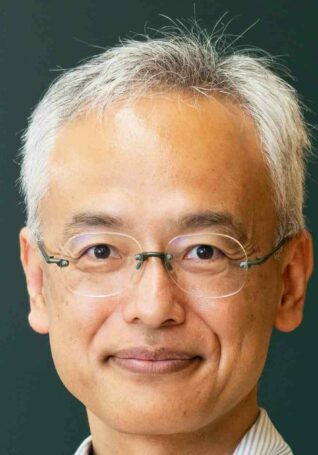
Prof. Daniel Loss
Daniel Loss received his Ph.D. in theoretical physics at the University of Zürich in 1985. After a postdoc in Urbana (with AJ Leggett) and at IBM in New York, he joined SFU in Vancouver and then University of Basel, where he is full Professor since 1996. Since 2012, he also heads a team at RIKEN. He established the field of spin-based quantum computing. He received several distinctions, including the Marcel Benoist Prize and the King Faisal International Prize in Science. He is an APS Fellow, member of the Leopoldina, and External Scientific Member of the Max Planck Society. He is co-director of the Swiss national center on quantum computing (NCCR SPIN).
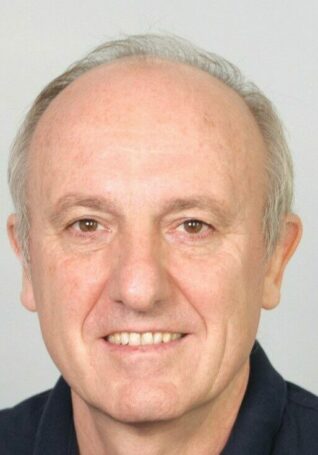
Industry co-organizer
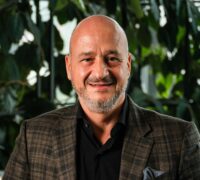
Damir Bogdan is CEO of QuantumBasel, a Center of Competence for quantum computing & AI with the mission to democratize the access to quantum computing. Damir is heading Actvide AG, a consulting company specialized on transformation within the digital age, leading C-Levels into the new future. Within this roles, he is active in Switzerland as well as in Silicon Valley. As a Member of the Executive Board, he was a long time CIO & Head of Operations of Switzerland’s third biggest banking group, Raiffeisen. Prior to this, he was part of the strategy group of Swisscom, founded a near shore development company in southern Europe and held different roles within the IT sector. Damir is multiple Board-Member within the Health Care, High-Tech and Industry sector.
